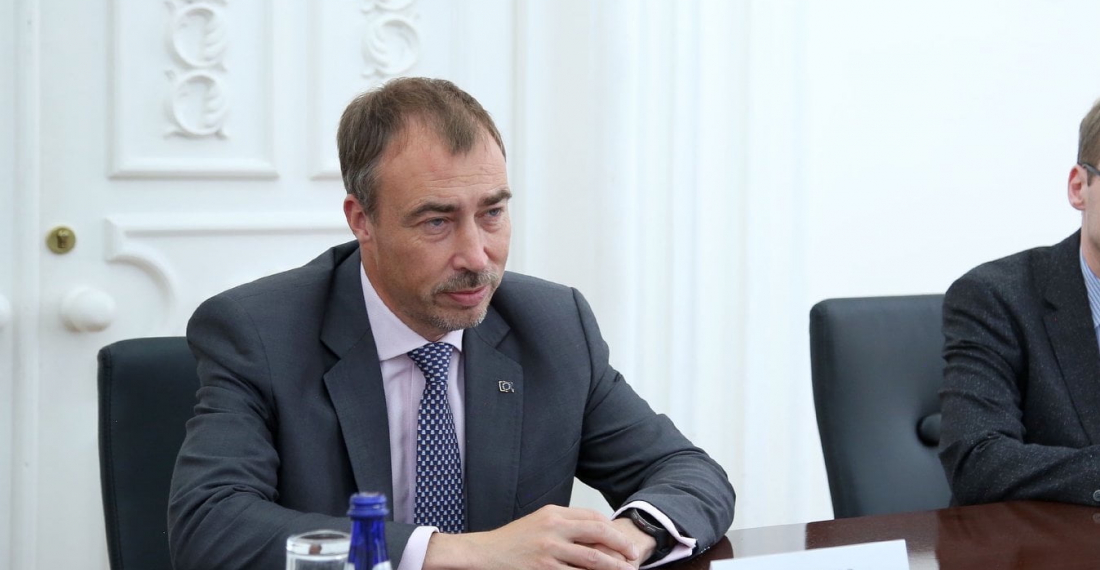A meeting with the leaders of Armenia and Azerbaijan will be held in Brussels in the very near future, but it will not be held before the end of this month as had been previously hoped. This was stated by the EU Special Representative for the South Caucasus, Toivo Klaar. Speaking about the state of Armenia-Azerbaijan negotiations that are being facilitated by the European Union, Klaar said "We are moving slowly in the right direction".
The EUSR for the South Caucasus addressed the forum "Making Progress in time of uncertainty" organised in Yerevan by the Applied Policy Research Institute, Armenia. Klaar spoke to participants on-line from Brussels.
In his address Klaar spoke about the reaction of the European Union to events in Nagorno-Karabakh in September and said that the EU had taken a clear position , which was robustly communicated to interested parties. The EU is now calling for conditions to be created for the safe return of Armenians displaced from Nagorno-Karabakh.
As regards on-going negotiations, Toivo Klaar said that the situation now is qualitatively different. The objective is the normalisation of relations between the sovereign state of Azerbaijan and the sovereign state of Armenia. There is now a window of opportunity to move forward with the objective of normalising relations between Armenia and Azerbaijan. The signing of a peace treaty is not an aim in itself, but simply an expression of this objective.
Klaar said that peace between Armenia and Azerbaijan will have benefit for the whole region, and the aim of the EU was to see the South Caucasus as a place where all countries have normal diplomatic relations, there is movement of people and goods, and the whole region is opened up for economic co-operation.
Speaking about Russia, EUSR Klaar said that the EU is not in the business of including and excluding anyone from the South Caucasus. Russia was an important close neighbour of the region and has its interests, as have the EU and the US. Klaar criticised the negative rhetoric coming from Moscow.
Toivo Klaar said the EU will continue to support civil society initiatives aimed at promoting trust and confidence across the South Caucasus. He however emphasised that this can never be an alternative to political will on the part of the governments who need to lead by changing official narratives.
The 2023 APRI Forum is taking place at the Marriott Hotel in Yerevan on 25-27 October 2023. More than a hundred participants from Armenia and beyond are participating.






